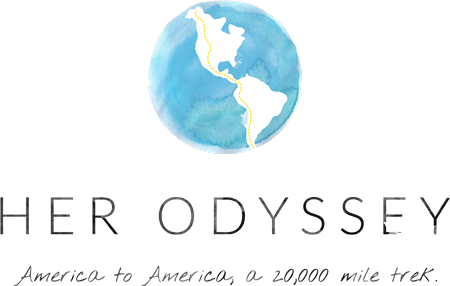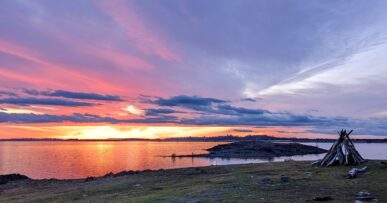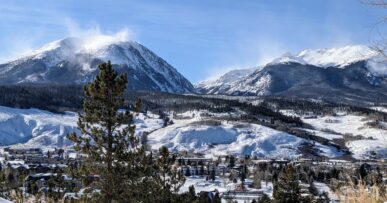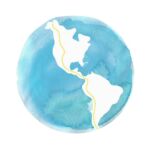*Written by Fidgit*
Darkness takes hold more quickly in the mountains and we had been pedaling slowly and ascending steeply into the Sierra Madre Occidental Range since disembarking from the ferry in Mazatlan. We’d left the sweltering coastal heat and humidity in the valleys below and were gratefully heaving mountain breezes and staying comfortable in the cooler air of early spring. We’d traded Cardon Cactus for pine.
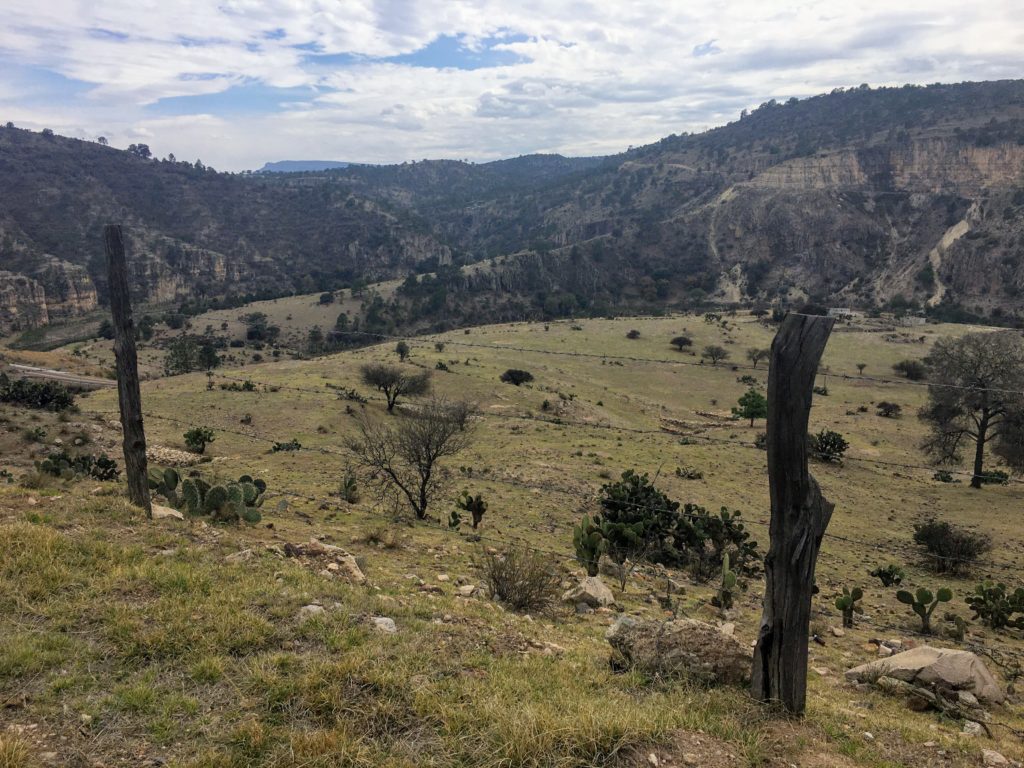
The hurried traffic stayed down on the cuota, the new highway which blew straight through the mountains, rather than the libre, the old highway which wound up the spine of the formidable escarpments. The change in highways had altered life along it. Ram-shackled, shuttered restaurants and all but empty settlements dotted the road. Official blue highway signs along the libre announced services now abandoned in favor of the gas station chain complexes down on the quota.
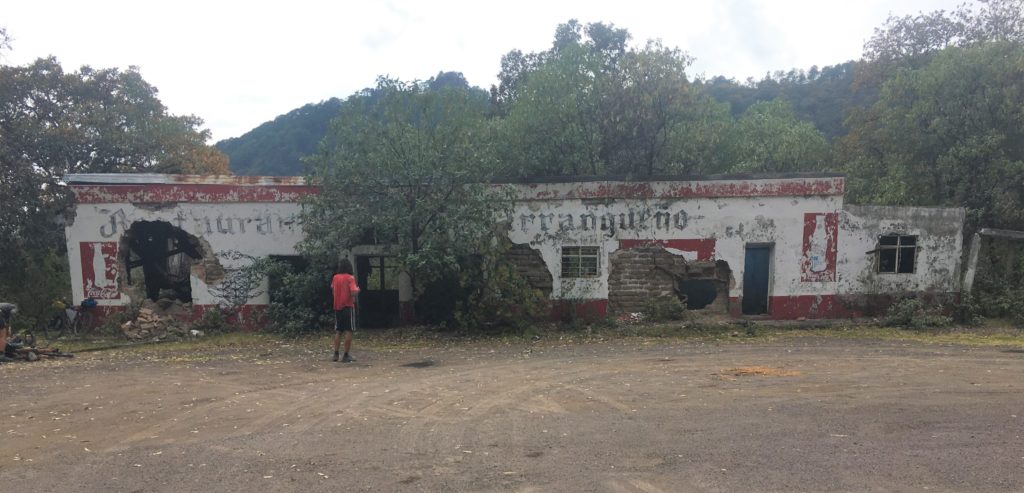
Approaching the pueblo of Potrerillos, a blue sign announced a hotel on the edge of town, when we arrived there in the late evening, something was amiss. Locked gates hung off their hinges. Shattered glass and upturned furniture lay in the yard. The front door to what once would have been a reception area was open and insides an overturned desk and clothing were scattered around. Pictures dangled limp on the wall, torn up by knives.
“Something bad happened here,” I summed up to the other two as I hurried back to them and our bikes. We pedaled on up the road a bit further to a shop woman selling gas in a 2 gallon plastic jug to a fellow siphoning it into his car using a cut up old 7-up bottle. I asked about the hotel and indicated we were looking for a place to stay. She was skittish and her eyes kept jumping to the man as I asked her questions.
This is the kind of area to be cautious, and as tactful as possible with inquiries. This is Sinaloa State, a level 4 advisory on the State Department Travel Advisories. Do Not Travel. They were both largely unhelpful and told us to ride on into the night. I asked about food and despite her shop, she told us to go on into town, there is an abarrotes there.
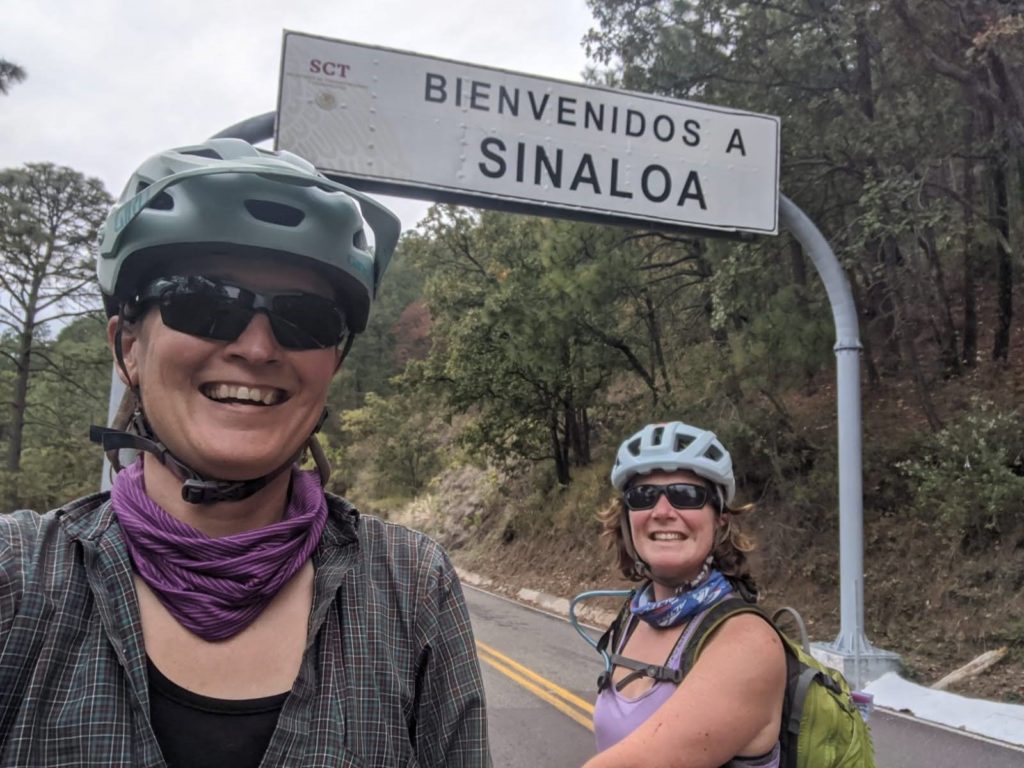
Alberto stood out in front of his shop and greeted us warmly. His laughter and jovial demeanor stood out in a place where silence spoke as much as words. We were trying to decide whether to push on or try to find a place to camp and I was starting to feel anxious. I decided to be more specific and careful in my line of inquiry with this shop owner.
“Don Alberto, is this road busy at night?” I asked
“No,” he replied.
“The people who are driving at night, are they sober?” I asked.
“Son borrachos,” he replied honestly, and explained the town down a dirt side road was having its annual fiesta so there would be even more borrachos than usual.
“Don Alberto, is there flat land to camp on ahead in these mountains?”
“There are spots that are flat enough,” his mustache twitched as he thought through that reply. He told us the distance and elevation to the next pass and described the road.
“Would it be safe for us to camp if we stay out of sight?”
He paused and tilted his head…”how about this, why don’t you camp here, I have a side yard and a gate. No one will bother you here.” He showed us a paved patio overlooking his mountainside huerta. The patio was filled with a large Tecate tent cover, mill, piles of rebar, and the odd assortment of goods you’d always and never expect to find. We gratefully accepted and quickly pulled our bikes in from the shop front to behind a wall of boxes and buckets, less visible from the highway which ran a few feet away.
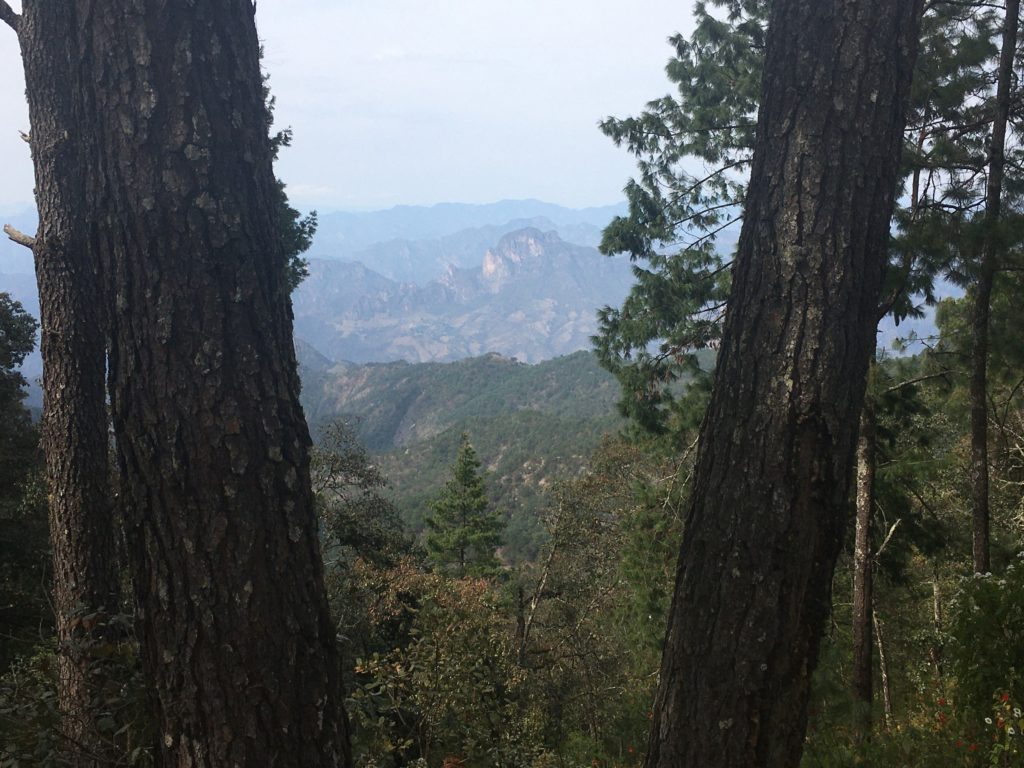
Once we’d pulled out the essentials and assured their safety, Neon and I wandered up around the hairpin in the road to one of two restaurants in town. It was a simple wood building with a white banner advertising pollo in red lettering. Stepping into the doorway I said, “buenas tardes. Permiso?”
A woman stood at a table amasando dough next to the wood stove, making tortillas, a man sat eating at the long table covered in plastic tablecloth while a young boy moved back and forth. “Pasale pasale,” she urged while the older man wiped his mouth and made to stand up.
“Provecho,” I wished him a good meal. To the woman, “hay algo?”
“Si. Hay pollo.” Like the woman earlier, there had been a pregnant pause and she was watching me warily but I sensed no danger in this hut, only a hard earned questioning of the unfamiliar, so I was friendly and as comported as one can after a long day and exhausting climb.
I’ve long since moved away from trying to allay people’s hesitation about extranjeros. I have learned over the years, that mistrust is hard earned and not always misplaced. I know people love stories of cross-cultural connection, of “breaking through,” of white people whisking in and saving babies. I was willing to walk out the door and across continents with the aim of being just such a connection and hero.
Yet, in walking this path and having experiences of my own where I had to harden myself and lock down some of my most joyous and vibrant aspects to stay alive, I’ve learned something different. Our tales of heroic adoption, as told from the other end, sometimes sound like organized kidnapping. family heirlooms “borrowed” by archaeologists and never returned, natural resources swindled from them. Particularly among the indigenous population. Thus, if people would rather insulate, my best is to honor that.
So, as with all things, it is a balancing act. It is not only dangerous to march into an unknown pueblo with only your own agenda in mind, it is to miss the cautious fruit of voluntary connection. That doesn’t happen by barging in, that happens by listening and showing up. So now, my aim is just to show up and be present and know that those who need to be heard, will find me.
“Dos platos por favor,” we pulled plastic chairs out of the pile in the corner and sat down. After a glance between themselves, he stood up and went to the butcher board and began chopping up a baked chicken, the boy came and took our drink orders (“hay coca” was our only option) and she returned to making tortillas.
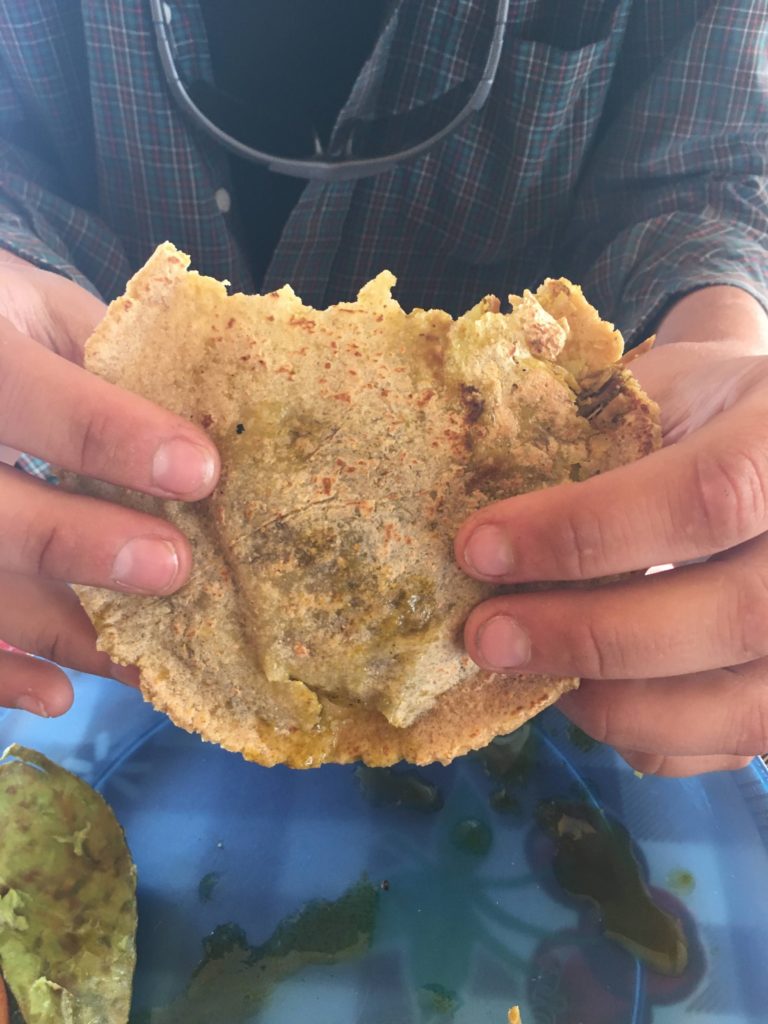
The usual conversation began to trickle.
Where were we from.
Where had we come from.
Where were we going.
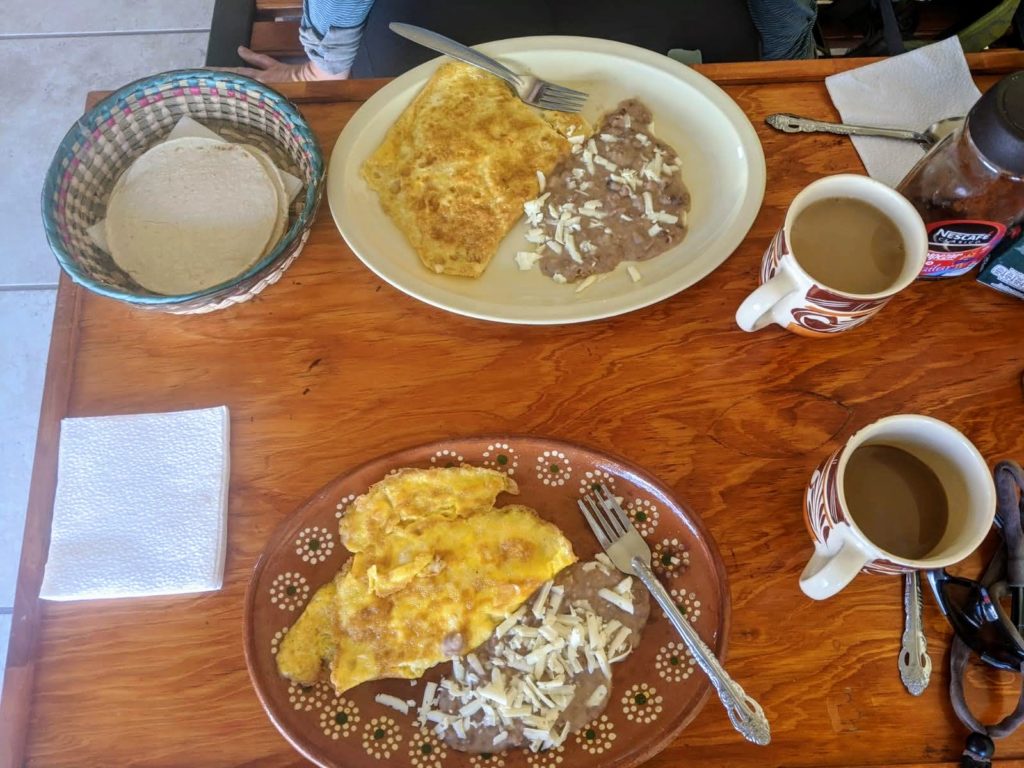
I began feeling comfortable and, being my mother’s daughter, am naturally a wee bit nosy so I went on.
“We had planned to stay at the hotel but…” I let the sentence trail off.
“It closed.” She concluded the thought, flipping a tortilla on the stovetop. Then, as she brought it over to the covered cloth basket of tortillas which comes with every meal you will ever eat in Mexico she added, “The people closed it.” A defiance and the delight in passing on juicy gossip mingled on her face.
“The owner must have done something bad!” I commented back. Fishing now.
“Oh yes, he did…many things… and so the people made him leave,” I could tell she wanted to say more, the gossip was salubrious on her lips but she looked at her husband and quickly turned and went back to the stove. That was that. Best not to push further but my suspicions had been confirmed and if I were to stick around this town for any amount of time I’m sure I’d hear the story in full time and again.
I have observed over the course of our journey, in areas that exist past the boundaries or ministrations of the law, the people are accustomed to taking it into their own hands. In Patagonia it was clear and spoken of directly. A Patagonian Argentine will relate more comfortably with a Patagonian Chilean than a Porteño from their own central government. A Quichua descendant on the altiplano will turn to their tribal elders for justice before going to the police outpost on the other edge of town. There was even a case Neon and I debriefed on where three white tourists in an RV were attacked by an entire pueblo.
There are two sides to the story and one was well written, covered by some media and garnered a lot of attention and sympathy from the first world on the internet, while the other side remains within that community and could only be interpreted and echoed by other third culture travelers. I digress except to try to help you understand what a tightrope we walk regularly out here. I was amidst a people who had to and were prepared to defend themselves against a perceived threat. Get on the right side of that and you are well cared for and wise to heed gentle warning. Get on the wrong side of that… now is not the time for tales of frontier justice.
In just a few days in the mainland, it has already felt more Mexican than the Baja. I don’t know any other way to put it than to say Baja California was Mexico white light , as much an extension of US California as a part of Mexico. Honestly about half the people we saw there were white (primarily Californian and Canadian) and we were clearly the primary source of income. I had even gleaned some territorial grumblings from the local guide population about companies run by gringos rather than Mexicans. I got a chance to chat with one older guide by himself one day and he was pretty honest about it. Then he talked about a gringo company run by a Canadian but then he had a son with a Mexican woman, so their son was Mexican and he now ran the business. “Asi son las cosas,” he concluded. A common expression I’ve heard in conversations.
The Mexican people of Baja California felt kind of like how the Mallorquins I had worked amongst related to Spain. Like, their cultural survival tactic was to allow it to be subverted but to keep it quietly alive amongst themselves. In the case of the Baja, it seems to mostly be cultivated away from the coast or other desirable tourism locations. I was also amused at their comeuppance of pointing out that all gray whales and many sea turtles are actually Mexican.
“They may travel the world but they are born HERE,” Miguel the guide emphasized the last word and pointed at the ground beneath his feet.
In subtle but constant ways, most often in exchanges, I felt more like a revenue source than frank connection. Which, don’t get me wrong, has serious advantages: service oriented things like like menus and customer service, more options in grocery stores, a lot of people speak English, eco-tours and lodges, stuff like that. Which had been nice but not the Latin America I know and love. Here in the forgotten backwoods, there were more people hanging off the backs of trucks. More independently run public transport (ie: guy with a truck who put two wooden benches in the back). We hadn’t seen a white face since we left the beachfront. Here in this smokey little wood shack on a mountain night, I felt like I was truly in Mexico. This was not my turf. And that, I think, is a fundamental difference between vacation and travel.
“Where are you staying?” the woman asked. There was concern and curiosity in her voice.
“We are staying with Don Alberto I replied. I watched her face carefully for hints. She relaxed visibly and smiled at me. Phew. My gut had been right, we were safe staying with him.
“He is good people,” she said, seeming relieved and returning to her tasks.
We chit-chatted easily from there. About how the cuota had been put in 3 years ago and had affected life and business. How it had affected the movement of wildlife. I described the flowers we’d seen and birds we’d heard and the whole family got involved in guessing at what I was describing and telling us their names. They were enthusiastic and comfortable as we ate the red rice, beans, and chicken on our plates.
With bellies full and my heart connected, we walked back to Alberto’s where I watched him supply the people from the next town over with ice and flats of beer for their fiesta tomorrow. We met his dog, El Borracho and he told us the story of how the dog got its name. Then he closed up shop and made sure we had everything we needed before locking us in.
The next morning, a Sunday, he opened shop early. First came a few folks for fruit and flour. By 7 am there was a pocket of men standing around drinking. Each had his can of beer and they were taking surreptitious nips of something amber colored from an unmarked bottle they called miel but at which his shop attendant clicked her tongue. We bought breakfast goods from his shop and sat around a picnic table eating and having our morning coffee.
Don Alberto came to stand at the railing and pointed out the different parts and crops in his huerta which ranged from an entire hillside of corn to some lush flowers in his back patio. There was an entire breezeway of corn he was drying which he would then take to the mill. The yellow of the drying kernels were beautiful against the yellow stucco of his house. He reached into a nearby tree and plucked several pomegranates. I’m not sure I’ve ever eaten a pomegranate before. I only know of it as “that fruit juice so expensive I could never afford it.” and now I understand why it is so costly. The juice is darn hard to get at! but it was delicious.
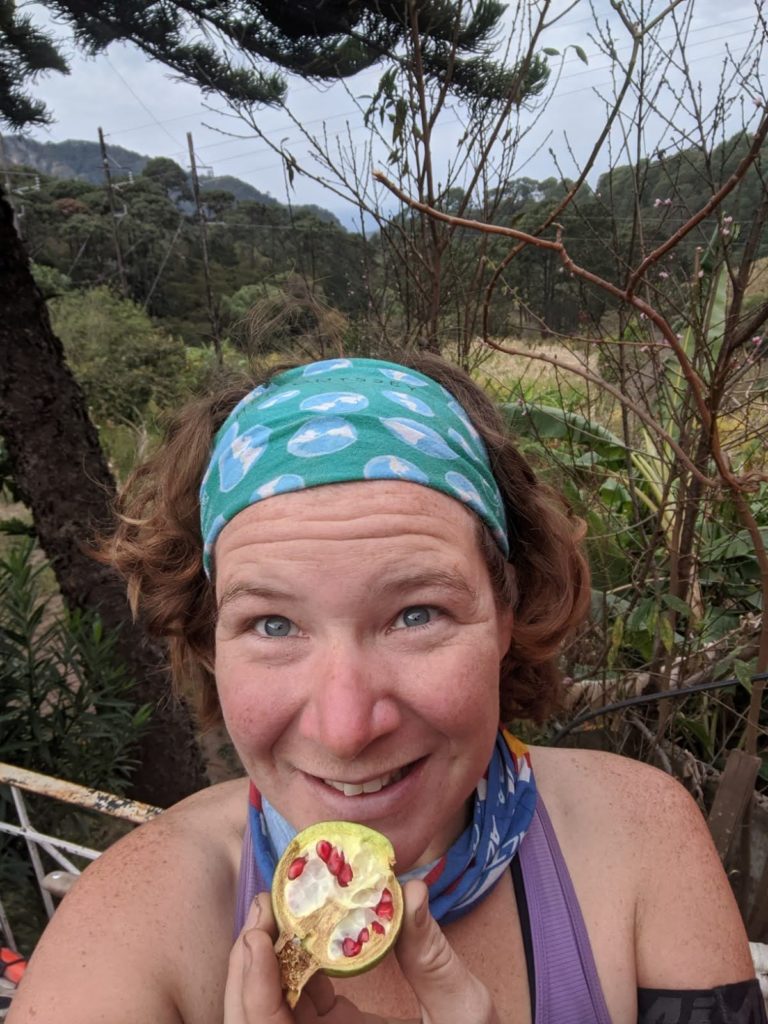
I had written him a short letter of thanks and we had all signed it and left that, with a sticker and 100 pesos wrapped up as a thank you. Group photos, saludos on all lados and we pedaled on.
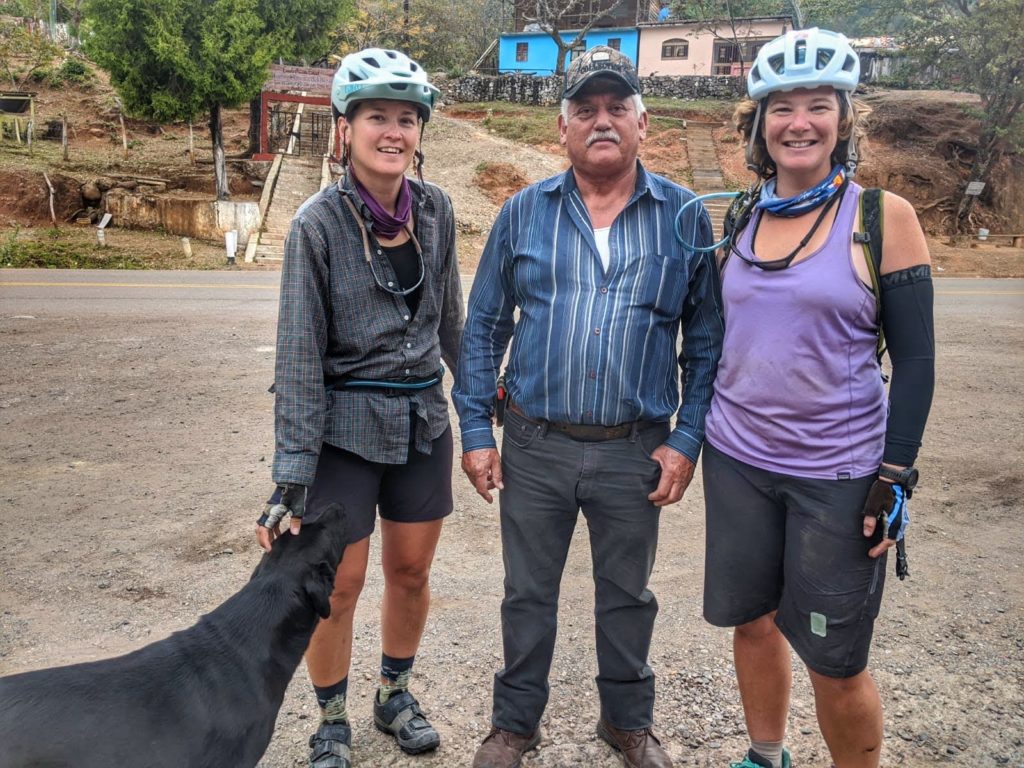
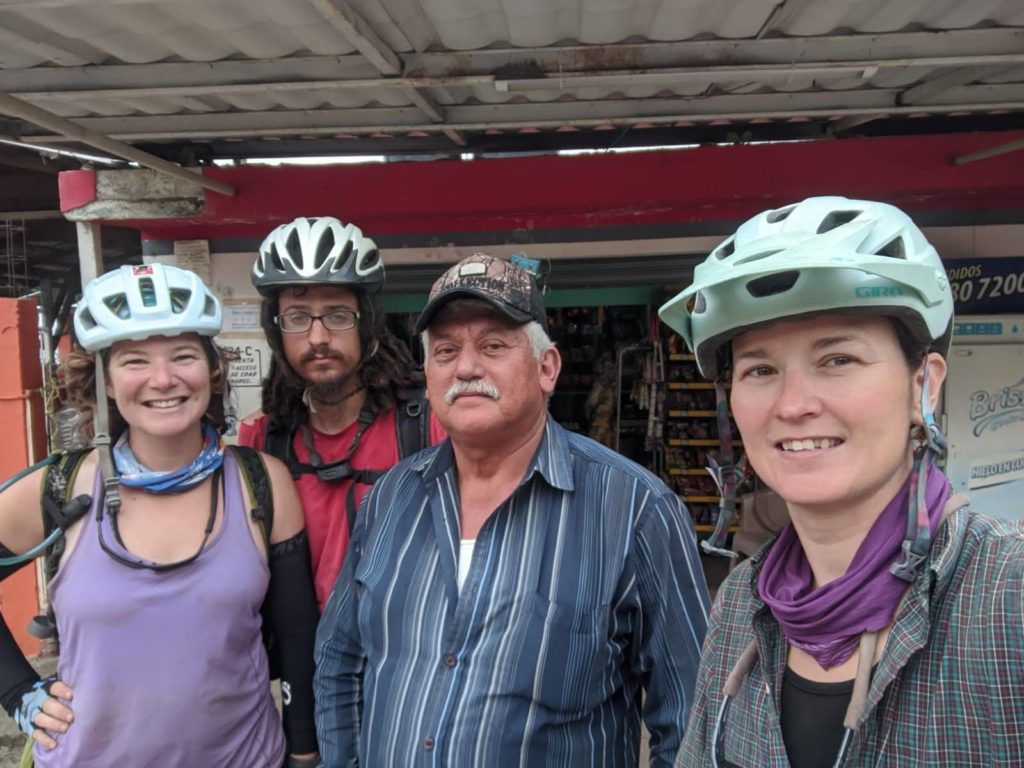
Again rounding the curve, the old man was walking out of the pollo shack. I stopped on the climb to say buenos dias, thank him again, and wish he and his family well. He spoke a simple blessing for our path ahead as I stood to get enough pressure to churn my pedal. Grinding up and up and reflecting on how much I had gained in such little time from such a tiny town.
This town was like the pomegranates Don Alberto gave us. Confusing and a bit difficult to understand. A lot of work even once you do have a grasp. But the yields are nutritious.
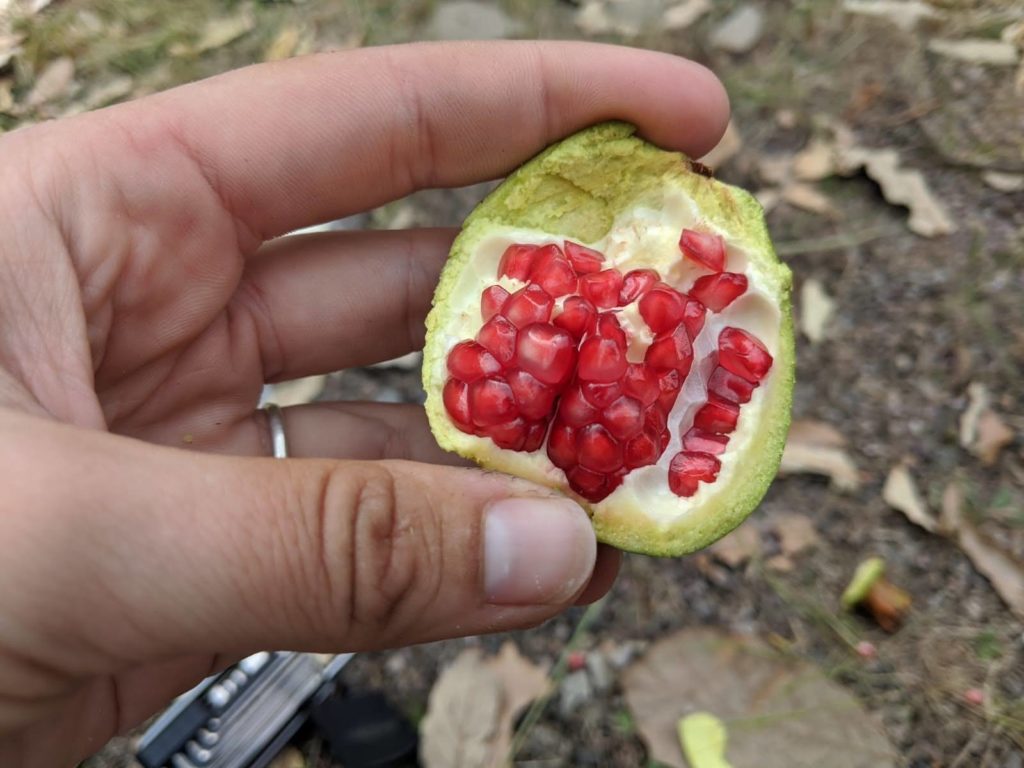
Do you enjoy the content you see here? Consider supporting our explorers with:
